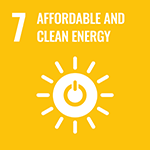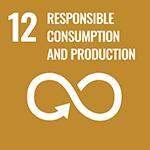Development of New Ammonia Synthesis System using Renewable Energy and Hydrogen
Principal Investigator


Prof.
HySA Infrastructure Centre of Competence, North-West University
Dmitri Bessarabov
ODA Recipient Country
Republic of South Africa
Research Institutions in Japan
National Institute of Technology, Numazu College / Utsunomiya University / Chiba University / The University of Tokyo / Institute of Science Tokyo / Nagoya University / Kumamoto University
Research Institutions in Counterpart Country
North-West University
Adoption fiscal year
FY 2021
Research Period
5 Years
Overview of the Research Project
Support advances in South Africa' s electrolysis technology by building a new ammonia production plant with the latest Japanese technology
South Africa depends on coal from its eastern region for 70% of its domestic energy, and also exports coal. Today, there are issues with how to green the coal and the need for a new means of distribution as a consequence. Power generated from renewable sources can only be used at the site where it is generated, and if it is changed to hydrogen this is not cheap to transport. Converted to ammonia, however, it can be transported worldwide. South Africa, which possesses cheap renewable energy and abundant precious metals for use as catalysts, and Japan, with its highlevel chemical technologies, are cooperating to develop novel clean ammonia production technology with the potential to be used worldwide.
Greening South Africa' s coal production industry, providing fertilizer to the African continent, and reducing Japan' s and the world' s CO2
We are using solar ammonia produced in western South Africa to green coal. The ammonia can also be used to meet the shortage of fertilizer on the African continent. Japan has added ammonia to its new energies for use in place of coal-fired power, and the fruits may contribute to the development of new technologies within Japan. They may also be widely applicable in other countries.
Photo gallery
Research Project Web site
Press Release
Links
Projects
Contact Us
Japan Science and Technology Agency (JST)
Department of International Affairs
SATREPS Group
TEL : +81-3-5214-8085
Related articles by Category
- Carbon Neutrality
Environment / Energy
(Carbon Neutrality)
 Kingdom of Cambodia
Kingdom of Cambodia
Using water management to reduce methane emissions from rice paddies!
Development and Social Implementation of Greenhouse Gas Emission Reduction Technologies in Paddy Fields of West Tonle Sap Lake by Establishing a Large Paddy Area Water Management System
- Southafrica
Environment / Energy
(Carbon Neutrality)
 Republic of South Africa
Republic of South Africa
Absorb carbon dioxide by means of mineral carbonation, and clean up the environment at the same time
Development of a Carbon Recycling System toward a Decarbonised Society by using Mineral Carbonation
- Africa
Environment / Energy
(Global-scale environmental issues)
 Republic of Zambia
Republic of Zambia
Experienced, not taught - Realizing safe water, sanitation and hygiene in Africa
Risk-based Participatory WASH Planning and Citizen-data WASH Statistics for African Peri-urban Settlements
- SDGs : Goal.13
Environment / Energy
(Carbon Neutrality)
 Republic of Indonesia
Republic of Indonesia
Healthy people, healthy world: Transforming CO2 with microalgae
Integrated Sustainable Energy and Food Production from Microalgae-based Carbon Capture and Utilization























